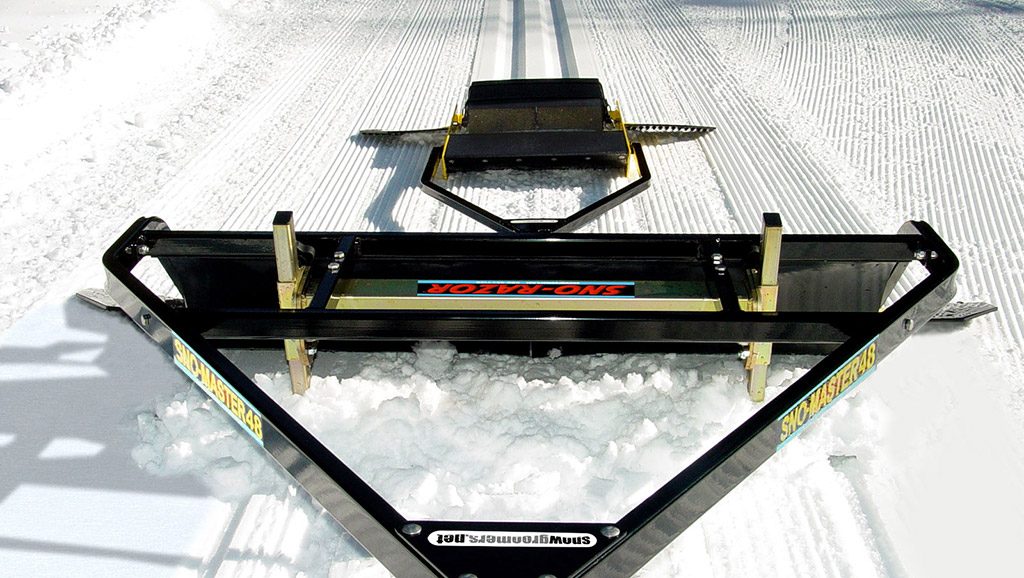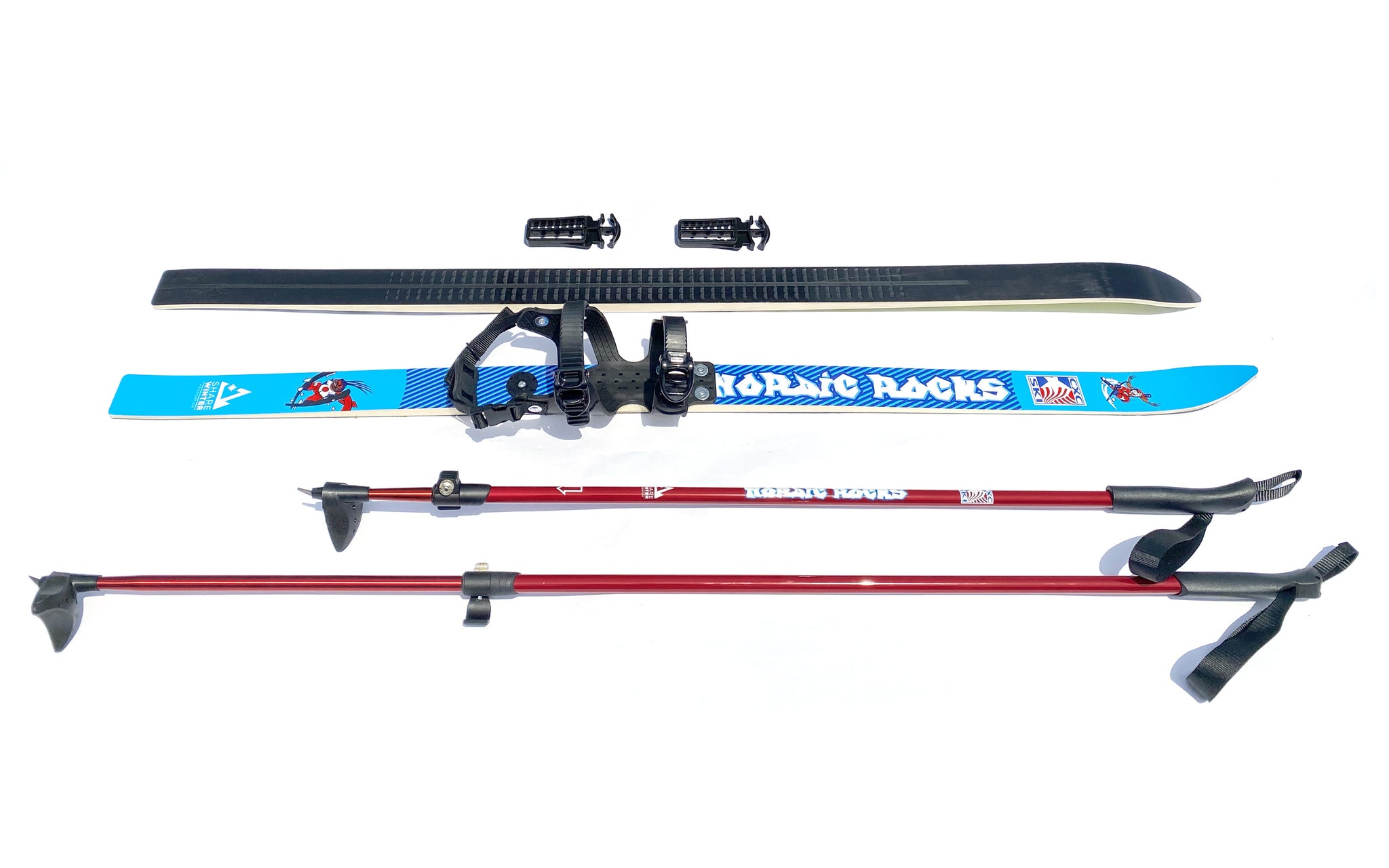
Cross country skiing can help you get in some exercise during the winter months. Not only is it a great workout, but it's also a fun activity that will get the family moving. You'll be able to enjoy the entire experience if you have all the necessary equipment. These tips will help you select the best gear and get to work.
First, you'll want to consider a good pair of boots. They should be flexible and warm enough to keep your feet warm. A layer of insulation will protect your skin. If it is cold, a lightweight waterproof one will also be useful. Don't forget your gloves and a hat.
You should also consider a topographic plan. This will allow you to locate your position on the trail. To ensure you are able to navigate correctly, make sure you have a compass as well as a GPS.
It is also important to practice the basics. Start off by standing in a balanced stance. Once you are in position, try a forward shuffle or a diagonal stride. Try to move forward while pushing the pole in front of your face. Slide down the trail occasionally.

Finding the best technique to glide down the trails is not always an easy task. There are many methods to use, and your technique may need to be adjusted depending on what terrain you're skiing. It is a good idea to seek the guidance of a professional guide if you aren't sure which method to choose.
Cross-country skiers will find two main types. Classic skiing refers to the longer, more traditional style that features two long, narrow skis and a grippy platform. The classic ski makes a great starting point for anyone looking to become a cross-country skier.
Although they have some of the best features, classic skis are still a great way for beginners to learn how to glide along the trails. Telescoping poles also make a good choice. It allows you to adjust the length of your poles, and it's also a good way to get a full body workout.
An alternative option is to invest in sunglasses. This will not only look great, it will shield your eyes from harmful UV rays.
Although it isn't a scientific fact that cross-country skiers with poles have better grip, it's a well-known fact. The strap should be tightened if your hand touches the pole.

Apart from the classic and telescoping snow skis, there are many pieces of gear that you will need for your journey. A good quality jacket is essential. You also need a topographic and compass map. Drink plenty of water.
Whether you decide to do it on your own, or take a class, cross country skiing can be an exciting and rewarding experience. You don't have to let winter blues discourage you.
FAQ
You should not forget these things when you travel.
Traveling can be stressful. You'll often find yourself in situations where you have little time to make decisions. You should be ready to improvise.
Sometimes you might find yourself stuck for days, weeks or months. If you've planned ahead, you'll have food, water, shelter, and a place to sleep. However, if you don’t plan ahead, you might need to improvise.
In these cases, you'll probably have to rely on what you know how to do best. That means making quick decisions based on instinct and experience.
Sometimes you don't have a choice. There are many situations where you might be left without cell or gas service, or even robbed. These situations will require you to quickly adapt to the situation.
The key is to keep calm, stay focused and act decisively. Don't panic. Instead, be calm and focus on what you can do.
You can, for example, choose the direction you want to travel if you get lost in the woods. You can also eat berries and mushrooms if you feel hungry. Rainwater or melting snow are good options if you're feeling thirsty.
If you're tired, rest. You can wrap up if you're cold. You can wear a sweater if it's cold. No matter what you do, it will make you feel better to stay positive.
How long does it take for you to fly between countries?
The distance between two airports and the weather conditions affect the time taken to fly.
Average flight time is about 3 hours.
The actual flight time is dependent on many factors, including the airline, aircraft type, delays at the airport, weather conditions, and the airline.
What should you do the first time you arrive at your travel destination after you have arrived?
You should always have an itinerary for when you arrive at a place. This helps you to know what to expect and where you should go next.
Planning ahead is essential to avoid being late for any important events.
If you plan to spend more than one day in a given city, it is important to research the museums, parks and landmarks that you would like to see.
A map of the area may be useful and you might want to read up on the history.
Statistics
- Pack sweaters, jackets, and underwear in reusable compression bags creating up to 75% more space in your luggage. (wikihow.com)
- Case in point: the private island of Ilha Caldeira, less than seven miles off the coast as part of the Primeiras and Segundas Archipelago, is located within the marine-protected area with 20 percent of the country's intact living coral. (travelandleisure.com)
- No Checked Bags: No Alcoholic beverages with more than 70% alcohol (over 140 proof), including grain alcohol and 151 proof rum. (tsa.gov)
- Alcoholic beverages with 24% alcohol or less are not subject to limitations in checked bags. (tsa.gov)
- That's an 18% jump from 2019, the previous record year. (travelandleisure.com)
External Links
How To
What are the top travel tips for beginners
Although traveling can be an exciting experience, there are many things you need to avoid to ensure a safe trip.
Here are some simple tips to help you plan your next holiday.
-
Book early. The prices will be lower if you book early. By booking in advance, you can save money on hotels and flights.
-
Stay-at-budget accommodations. The best value for money is found in the cheapest hotels. These hotels are often located close to shopping and public transportation.
-
Don't overpack. Be light. Make sure you have enough space for souvenirs and other gifts. Take clothes that fit well.
-
Use common sense. Don't wander around at night if you are traveling solo. Avoid sketchy neighborhoods and areas where crime is high.
-
Prevent theft. Keep valuables locked away from sight. Don't leave anything valuable behind when you go swimming.
-
Cash is a dangerous thing. Tourists living in foreign cities are often the target of thieves. Keep your money away from prying eyes and only use ATMs at banks or protected facilities.
-
Be familiar with your surroundings. Make sure you are familiar with public transportation before booking a hotel. Get information on tourist attractions, restaurants and other sights.
-
Be sure to learn about safety. Before you travel, learn about the culture, laws, and customs of your destination.
-
Have fun. No matter what happens, enjoy yourself. It's worth it.